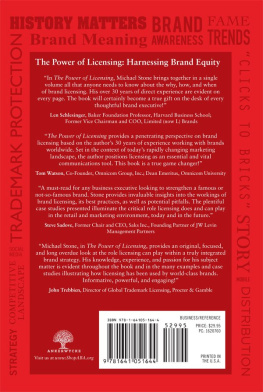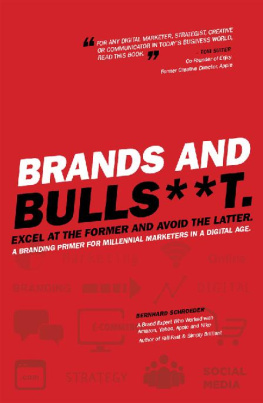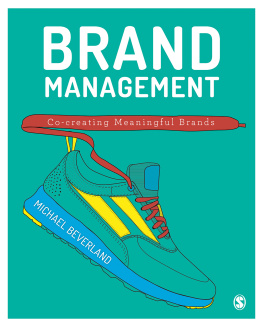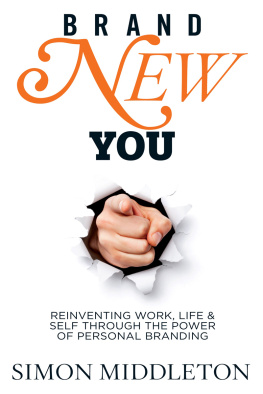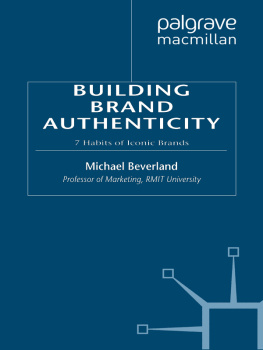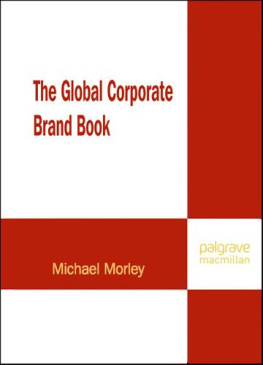


Cover design by Elmarie C. Jara/ABA Design
The materials contained herein represent the opinions of the authors and/or the editors, and should not be construed to be the views or opinions of the law firms or companies with whom such persons are in partnership with, associated with, or employed by, nor of the American Bar Association unless adopted pursuant to the bylaws of the Association.
Nothing contained in this book is to be considered as the rendering of legal advice for specific cases, and readers are responsible for obtaining such advice from their own legal counsel. This book is intended for educational and informational purposes only.
2018 Michael Stone. All rights reserved.
No part of this publication may be reproduced, stored in a retrieval system, or transmitted in any form or by any means, electronic, mechanical, photocopying, recording, or otherwise, without the prior written permission of the publisher. For permission contact the ABA Copyrights & Contracts Department, copyright@americanbar.org, or complete the online form at http://www.americanbar.org/utility/reprint.html.
From somewhere i have never travelled,gladly beyond. Copyright 1931, (c) 1959, 1991 by the Trustees for the E. E. Cummings Trust. Copyright (c) 1979 by George James Firmage, from COMPLETE POEMS: 1904-1962 by E. E. Cummings, edited by George J. Firmage. Used by permission of Liveright Publishing Corporation.
22 21 20 19 18 5 4 3 2 1
eISBN: 978-1-64105-165-1
Discounts are available for books ordered in bulk. Special consideration is given to state bars, CLE programs, and other bar-related organizations. Inquire at Book Publishing, ABA Publishing, American Bar Association, 321 N. Clark Street, Chicago, Illinois 60654-7598.
www.shopABA.org
This book is dedicated to Patricia Hillary Grodd.
My wife, my poet, my best friend, my muse, my inspiration, and my love, always.
(i do not know what it is about you that closes and opens;only something in me understands the voice of your eyes is deeper than all roses) nobody,not even the rain, has such small hands
From somewhere I have never travelled,gladly beyond by E. E. Cummings
Contents
Introduction
W hen you purchase a Black & Decker toaster oven, a Westinghouse air conditioner, a quart of Hersheys chocolate milk, a can of Sunkist orange soda, a P.F. Changs frozen meal, a Mr. Clean broom, or an AT&T landline phone, you are purchasing a licensed product. Sure, we all know that we are buying licensed products when we purchase a New York Yankees T-shirt or a Star Wars toy light saber or a John Deere toy truck or a U.S. Army wallet, but a true licensed brand extension is seamless in the eyes of consumers. From consumers perspectives, the origin of the product is the brand itself; without looking closely at the labeling or packaging, consumers generally dont realize that the product actually comes from another source authorized by the brand to manufacture, market, and distribute the product, all subject to the brand owners approval. Walk down the aisle of a Kroger, Target, Macys, Lowes, CVS, or Costco or scroll through Amazon or other brick-and-mortar or online retailers and see if you can discern which branded products are licensed and which are the core products coming from the brand owner itself. If brand licensing has been done correctly (and you will know what that means when you finish reading this book), you will not be able to separate the core products from the licensed products. And, importantly, as you will also learn, those licensed products are delivering a brand message and motivating the consumer to further participate with the brand. Licensing contributes, supports, and strengthens the sticky relationship that brands seek with consumers.
With regard to corporate brands using licensing, many marketers think of licensing as logo decoration on products, what is not surprisingly called decorative licensing. You may have a Caterpillar baseball style hat in your closet or a McDonalds ceramic mug in your kitchen cabinet or a sweatshirt in your dresser drawer emblazoned with the blue oval logo of the Ford Motor Company. Sometimes the decoration goes a bit further with creative designs incorporating the brand trademark. Perhaps that Ford sweatshirt also features images of vintage automobiles or a Pepsi Cola notebook includes fun pop art images from past advertising campaigns (or even newly created artwork). Decorative licensing with corporate trademarks has been around a long time and is increasingly common. And theres nothing wrong with that kind of licensing. It helps promote the brand. It helps consumers identify with brands they enjoy. It creates a consumer connection to the brand.
But brand extension licensing represents a different approach to this marketing discipline, and that is the focus of this book. Its about that Black & Decker toaster oven. Its about products that are so closely aligned with the core product that consumers perceive the connection between the licensed product and core product as seamless.
Companies with famous (and some not-so-famous) brands use licensing for many purposes:
- Achieve overall brand and corporate goals and objectives
- Build brand awareness, affection, loyalty, and penetration
- Create new consumer touchpoints, engagement, and brand experiences
- Reach a new demographic or, simply, more consumers
- Reinforce or redefine, and communicate a brand message
- Drive incremental revenue through royalties
- Motivate and inspire consumers to purchase more of the core product
That last point is critical. It is at the heart of what marketing is ultimately all aboutcreating sales; driving consumers to a purchase, the last step in the shopping journey. Licensing has all of the attributes and objectives of any marketing/communications tool. In fact, thats what licensing is, a marketing and communications tool focused on recruiting, retaining, and further bonding consumers to a brand.
Why and how companies use that tooland how you can capitalize on their experiencesis what this book is about. Indeed, for many sophisticated consumer product companies, brand licensing is now an important part of an integrated marketing strategy that can include disciplines such as advertising, public relations, product placement, packaging, point of purchase, social media, direct mail, experiential marketing, co-marketing and collaborations, and sponsorships, as well as other marketing tools. And licensing is also part of the consumer shopping journey (a journey that is getting increasingly complex in our connected world), which makes it integral to a brands marketing and retail strategy, both online and offline retail.
Corporations, entertainment properties, food companies, sports leagues, artists, fashion designers, celebrities, and personalities all participate in licensing. Although licensing is actually a legal actit is the contractual permission to use a name, a slogan, a logo, a likeness, a character (i.e., an intellectual property) in conjunction with a product or service for a prescribed period of time, in exchange for a payment in the form of royalties or feesthe reasons for its use are much broader than simply granting rights to use intellectual property. Specifically, for brands, its about connecting and engaging with the consumer. Its about touching and communicating with the consumer along the way in the shopping journey (something that will be discussed in greater detail in Chapters 11 and 12). Brand licensing as a tool to solidify consumer brand engagement and connectivity. In a world where consumers, particularly younger consumers, have short attention spans and jump very quickly from one connection to the next, brand licensing can play a very effective role.
Next page
